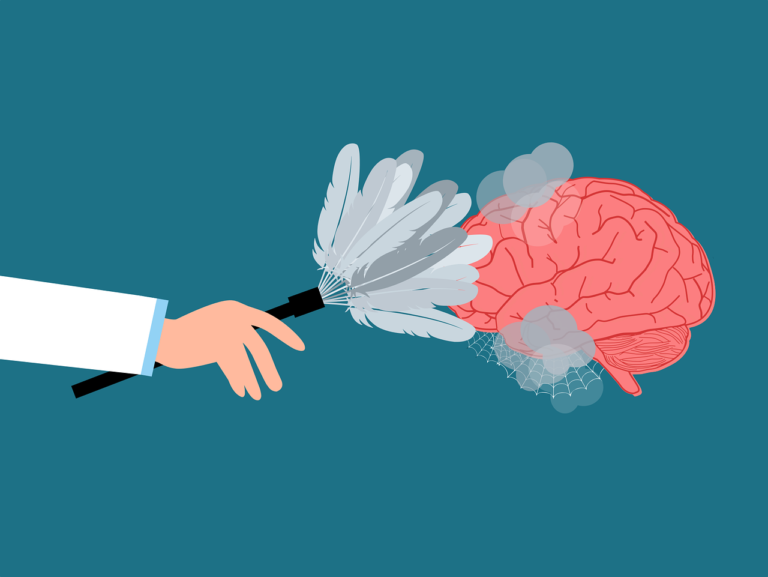Life can feel like a rollercoaster, with unexpected twists and turns that leave us feeling disoriented. From global challenges like climate change to the daily grind, negativity can easily creep in and cloud our outlook. But what if I told you the key to a happier, more fulfilling life wasn’t dependent on external circumstances, but on a simple shift in perspective?
Science across various disciplines supports this. A 2018 sociological study by the University of Chicago found that individuals with a strong sense of community and social connection reported higher levels of well-being. This aligns with the concept of a growth mindset, where we believe our abilities can be developed through effort and connection.
Here are 7 mindset shifts that can be your personal happiness hacks, drawing from psychology, neuroscience, and sociology:
1. Growth Mindset vs. Fixed Mindset:

Imagine this: You try a new recipe, and it’s a disaster. Do you throw in the towel and declare yourself a culinary failure (fixed mindset), or do you see this as a learning experience and an opportunity to improve (growth mindset)?
Pioneered by psychologist Carol Dweck, the growth mindset is the belief that our abilities can be developed through effort and practice. This empowers us to embrace challenges, learn from mistakes, and persist even when things get tough. A 2015 neuroscience study published in Nature found that a growth mindset is associated with increased activity in the brain’s reward system, motivating us to keep learning.
Action Step: Challenge your limiting beliefs. When faced with a setback, tell yourself, "This is a temporary hurdle, not a permanent roadblock. What can I learn from this experience?"
2. Abundance vs. Scarcity:
Do you see the world as a competition with limited resources, where someone else’s success diminishes your own (scarcity mentality), or do you believe there’s enough opportunity for everyone (abundance mentality)?
People with an abundance mindset view opportunities as plentiful and success as contagious. They celebrate the achievements of others and believe that their own goals are attainable. A 2017 study in Sociological Science found that people with an abundance mentality are more likely to build strong social networks and collaborate effectively, fostering a sense of belonging and shared success.
Action Step: Practice gratitude. Shift your focus from what you lack to what you have. Write down three things you're grateful for each day, including the positive aspects of your social connections.
3. From “I Have To” to “I Get To”:
Let’s be honest, chores and responsibilities can feel like burdens. But what if we reframed them?
Instead of viewing tasks as obligations (“I have to clean the house”), consider the benefits (“I get to create a clean and comfortable space”). This subtle shift in perspective can make a world of difference. A study published in the Journal of Experimental Social Psychology found that framing tasks with a focus on the positive aspects increased motivation and enjoyment.
Action Step: Reframe your daily tasks. Think about the bigger picture. Instead of "I have to go to the gym," try "I get to invest in my health and well-being, which allows me to feel more energized for myself and those around me."
4. Embrace the Power of “Yet”:
We often fall prey to the “all-or-nothing” mentality. Didn’t master a new skill on the first try? We must be failures, right? Wrong!
Adding “yet” to the end of negative self-talk completely changes the narrative. “I can’t speak Spanish yet” becomes a powerful affirmation of your potential for growth. A 2014 study in the Journal of Personality and Social Psychology suggests that using “yet” language can boost motivation and perseverance.
Action Step: The next time you catch yourself thinking, "I can't do this," add "yet" and rephrase it as a future possibility. "I can't run a marathon yet, but with training and support from my community, I can achieve that goal."
5. Celebrate the Journey, Not Just the Destination:
Our culture often fixates on end goals. But the truth is, the journey itself is where the magic happens.Focusing solely on the finish line can lead to frustration and a sense of inadequacy. Instead, savor the process, appreciate the small wins, and find joy in the pursuit of your goals.

A 2016 study in the journal Emotion found that people who experienced more “flow” moments, characterized by complete immersion in an activity, reported greater happiness and life satisfaction. This concept aligns with the sociological idea of “social flow,” where individuals experience a sense of belonging and purpose through meaningful connections and contributions to their communities.
Action Step: Track your progress along the way, but don't just focus on reaching milestones. Keep a journal where you document your efforts, celebrate your moments of flow, and reflect on how your actions contribute to your social connections.
6. External Validation is Fleeting, Internal Validation is Forever:
Social media feeds are flooded with carefully curated highlight reels, making it easy to fall into the trap of comparing ourselves to others. But the truth is, their highlight reel doesn’t tell the whole story.
Seeking validation from external sources is a recipe for disappointment. Instead, cultivate self-compassion and celebrate your unique journey. A 2018 neuroscience study published in Social Cognitive and Affective Neuroscience found that self-compassion activates brain regions associated with reward and emotional regulation, leading to greater well-being.
Action Step: Practice self-compassion. Treat yourself with the same kindness and understanding you would offer a friend. Talk to yourself with encouragement, not criticism.
7. Find Your Tribe:
Humans are social creatures who thrive on connection. Research in social psychology suggests that strong social bonds not only contribute to happiness but can also buffer us from stress and adversity.
Finding your “tribe” – a community of like-minded individuals who support and encourage you – can be a powerful happiness hack. This aligns with the concept of a growth mindset, as supportive communities can provide resources and inspiration to help you learn and grow.
Action Step: Step outside your comfort zone and connect with others. Join a club, volunteer in your community, or simply strike up conversations with people you meet.
Remember, these mindset shifts are a journey, not a destination. Be patient with yourself, celebrate your progress, and embrace the process of becoming your happiest self.
Bonus Tip: Pair these mindset shifts with healthy habits like exercise, meditation, and getting enough sleep to create a holistic approach to happiness.
By implementing these tips and reprogramming your brain for positivity, you can unlock your full potential and live a life that truly lights you up. Now go forth and build your happiness toolkit!

